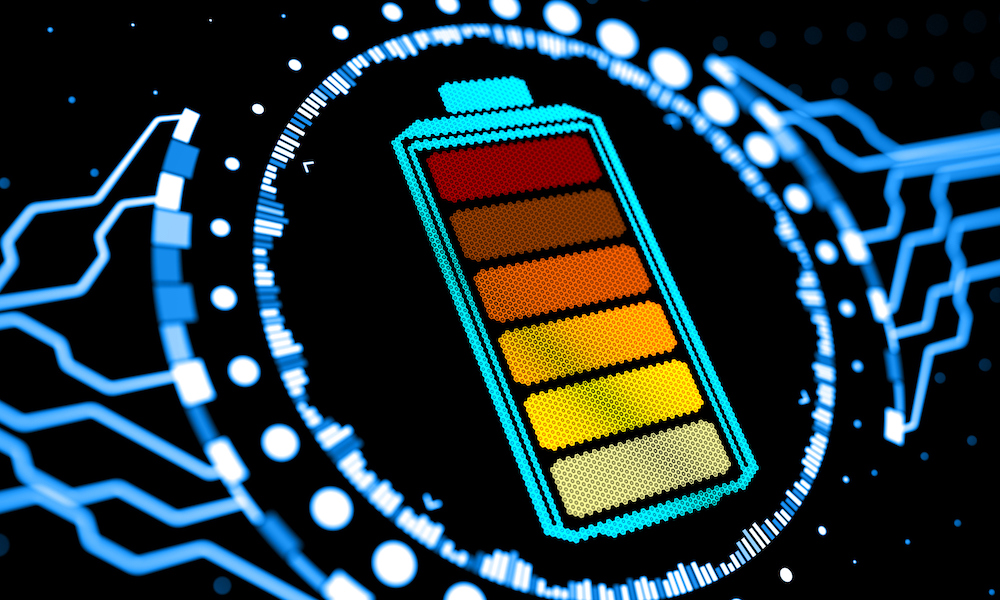
The future is battery-powered.
From minuscule wearables and electric vehicles to enormous reservoirs that store power from wind and solar farms, cell and battery performance remains a limiting factor to technological advancements. Improved battery production means less time tethered to charging cords, longer ranges on electric cars, and more reliable, renewable energy grids in the future.
Battery technology holds vast potential – but it also presents battery OEMs with challenges in assessing and managing rechargeable battery system performance based on key indicators, including:
- Cycle lifetime measures the number of times a battery cell can perform before decreasing to 80% of initial capacity, and incremental performance loss
- Energy density is the weight/volume measurement of the amount of energy a battery can hold
- Power density determines the battery discharge rate in proportion to its maximum capacity
- Charging time indicates how quickly a battery charges in proportion to its maximum capacity
- Reliability in relation to operating conditions, such as low temperatures or harsh environments
- Safety as defined by a battery’s resistance to losing energy through self-heating/accelerated temperatures (thermal runaway)
While OEMs work to optimize energy efficiency in their products, battery cell performance and energy storage are also works in progress.
Toll processing serves a vital function throughout supply chains and product development for battery manufacturers, speeding up R&D, improving efficiencies, and reducing waste — saving time, money, and resources along the way.
HIGH-VALUE RAW MATERIALS DEMAND PRECISION PROCESSING
All across the battery industry, innovators from big-name brands to small startups are approaching from all sides to reinvent high-performance lithium-ion batteries. All solid state, sodium ion, and lithium-sulfur technologies hold promise for the future, and further technologies are emerging from constant, ongoing exploration.
But one thing all battery technologies have in common is a need for precision processing of high-value raw materials, including:
- Aluminum
- Cobalt
- Copper
- Graphite
- Iron p hosphate
- Lithium
- Manganese
- Nickel
- Silicon
- And more
Limited material availability and volatile costs continue to drive efficiency improvements; in the meantime, though, there’s simply no room for waste in processing.
Leaders in the battery industry look to toll processors to deliver on-demand material expertise for specialized milling, drying, classifying, blending, and compounding of high-value materials from the many minerals used to the thermoplastic polymers needed for manufacturing cells and batteries.
An experienced toll processor’s material scientists, engineers, and equipment operators work closely with customers to achieve target particle size and material specifications while maximizing processing yields of these high-value raw materials.
In addition, access to state-of-the-art technology and collaborative, experienced toll processors can help even the sharpest, most insightful battery engineering teams improve their work outcomes.
ADVANCED TECHNOLOGIES AT A COST SAVINGS OVER IN-HOUSE PROCESSING
In the highly competitive battery industry, speed to market is critical. Streamlining R&D by running multiple parallel development processes can be a vital value-chain benefit of partnering with a toll processor.
How?
Electrodes, electrolytes, separators, and cell and battery housings all demand specialized active materials, binders, and additives. Each must be processed to exacting particle size and morphology requirements to ensure performance as well as resistance to mechanical and thermal breakdown in use.
A toll processor with experience in the battery industry already has the key equipment a battery manufacturer needs — purchased, installed, calibrated, and ready to run. That means:
- Materials are queued up for processing in a fraction of the time it would take to source, price, and install similar equipment in-house
- Expert toll processing teams manage processes and outcomes
- No capital investment
- No finding space to accommodate new machinery
KEY TOLL PROCESSING TECHNOLOGIES FOR BATTERY MANUFACTURERS
Particle size and morphology impact the electrochemical performance of composite products in batteries.
Toll processors with technical and equipment mastery ensure that materials meet tight particle-size distributions and can achieve even the most challenging specifications, using proven processes in dry and wet milling, blending, compounding, and dispersion, and a range of analytical services:
- Pre-grinding steps may help achieve more efficient processing, depending on the characteristics of the raw feed
- Jet milling, including fluidized bed jet milling, can micronize a broad range of materials. Inert gases enable milling of flammable or combustible constituents, and cryomilling can improve outcomes with some challenging materials
- Wet media milling can achieve particle sizes down to the nanometer range
- Drying processes ensure exacting moisture control
- Particle size ranges can be controlled using air jet classification or screening
- Secondary milling processes ensure consistent blending, final particle size and surface characteristics, as well as deagglomeration
- Advanced particle surface treatments can exert even greater control over material behavior
- Fine powder blending is possible on a range of equipment — as is liquid dispersion
- Polymer composites and paste slurries, including reactive materials, can be compounded and degassed on extrusion equipment
Most importantly, a toll processor can perform these functions at smaller, trial-size runs, enabling exploration of the impact of various particle sizes and morphology differences on cell and battery outcomes. And when a marketable solution is identified, the toll processing team can easily pivot to full-scale production volumes and rates to get products to market fast.
PROCESS CONTROL & QUALITY ASSURANCE
Partnering with a toll processor that knows batteries means high-value, challenging constituent materials will be handled and processed safely in accordance with certified production and quality assurances processes that:
- Ensure full regulatory compliance
- Document processes and procedures
- Control chain of custody whenever needed
It’s hard to overstate battery technology’s importance in just about every industry’s future. So it’s vital for industry innovators to know where and how to access the particle processing expertise needed to drive investigation, innovation, and production forward.
Explore the potential benefits your business may realize by partnering with a trusted, experienced toll processor such as CPS in our guide, Comparing the Benefits of Toll Processing Vs. In-House Manufacturing. Click the link below to download your copy now.


.png?width=100&height=110&name=CPS-Logo-rgb-no-callout%20(1).png)
